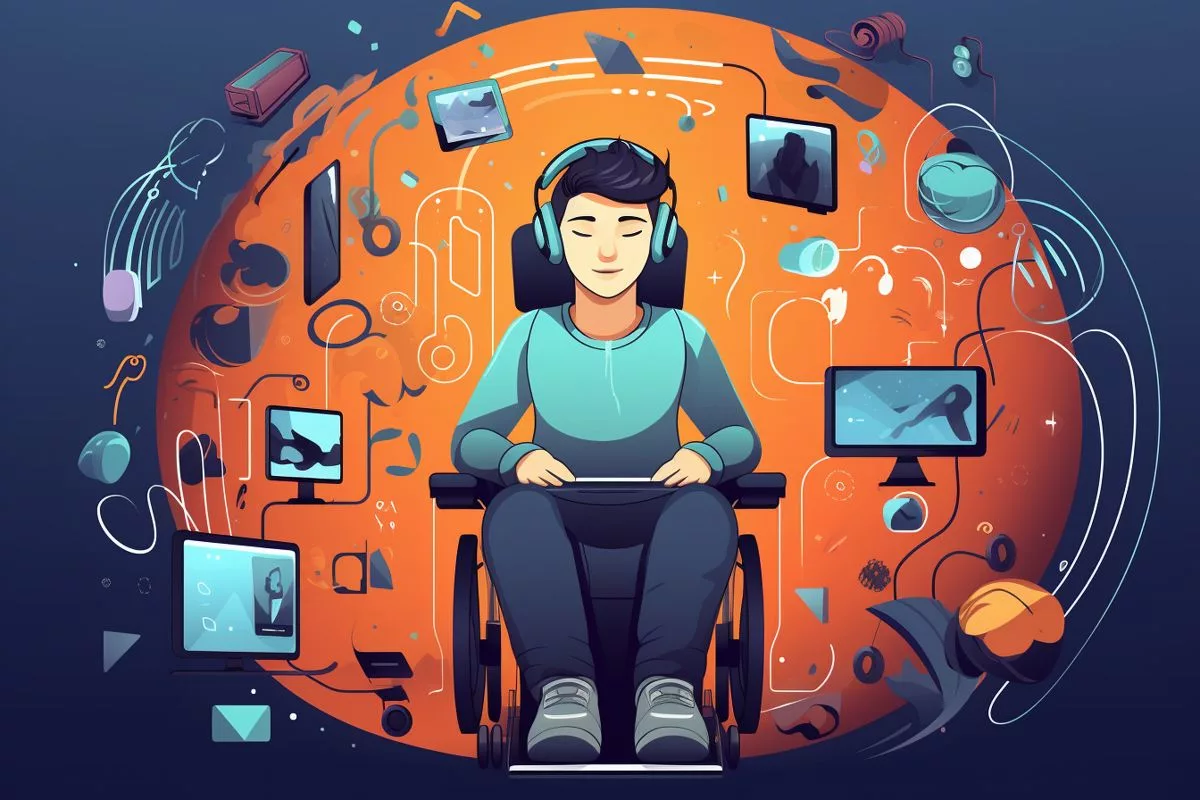Over a six month period from April to September 2023, the Gauteng Health Department distributed over 38,000 aid devices, including prostheses, wheelchairs, and hearing aids, to disabled individuals in South Africa. These devices are tailored to address the unique challenges faced by disabled individuals, supporting them in leading fulfilling and integrated lives. The department also provides vocational rehabilitation services and cochlear implant programs, making it a model for empowering and uplifting disabled populations.
The Power of Inclusion: Gauteng’s Aid Device Program
The Gauteng Health Department distributed 38,742 aid devices, including wheelchairs, hearing aids, orthoses, prostheses, and walking aids, to disabled individuals in South Africa from April to September 2023. The devices are crafted to address unique challenges faced by individuals, enhancing their ability to contribute to their communities and lead enriching lives. Additionally, the department provides vocational rehabilitation services, cochlear implant programs, and promotes disability rights. The initiative exemplifies a focus on inclusion and serves as a model for uplifting and empowering disabled populations.
Enhancing Lives Through Assistive Devices
The Gauteng Health Department (GDoH) is paving the way for disability empowerment in South Africa. Over a span of six months from April to September 2023, an astounding number of 38,742 aid devices were distributed by them, offering a beacon of hope to individuals dealing with diverse disabilities. This initiative is a testament to their commitment towards augmenting the quality of life for disabled persons and fostering their integration into society.
The range of distributed aid devices includes wheelchairs, hearing aids, orthoses, prostheses, and walking aids among other tools. Each device is deliberately crafted to address the unique challenges faced by individuals, thus equipping them with the necessary tools to contribute actively in their communities.
Nomantu Nkomo-Ralehoko, the Executive Council Member (MEC) for Health and Wellness, underscored the life-changing impact these aid devices have on their beneficiaries. She fervently discussed how these tools enhance the holistic well-being of users by not only sustaining or ameliorating their functional abilities but also by facilitating their active societal involvement.
Prosthetic and Orthotic Contributions
An integral part of this initiative by the GDoH is the provision of prosthetics for those who have suffered the loss of body parts. For instance, from April to September 2023, 376 prosthetics were dispensed, bestowing upon recipients enhanced mobility and functionality, thereby enabling them to partake in everyday activities without inhibition.
Also, orthotic devices form a crucial component of the department’s intervention strategy. These apparatus, including spinal braces, arm and knee guards, surgical footwear, and other types of supportive gear, aid patients in recuperating from trauma or congenital conditions. As of the current fiscal year, the department has successfully dispensed 13,461 such orthotic devices.
These prosthetics and orthotics are conveniently accessible at four Prosthetic and Orthotic Centers spread across the province. Moreover, ready-made orthotics are also provided by numerous Physiotherapy Departments in hospitals across the province.
Beyond Device Distribution: Holistic Support Services
But the efforts of the GDoH extend beyond merely distributing assistive devices. They also render services like Vocational Rehabilitation, which comprises functional capacity evaluations and assessments for Permanent Incapacity and Ill-health Retirement (PILIR). In the first half of the fiscal year, they conducted 135 of such assessments.
Additionally, the department has implemented a Cochlear Implant program, significantly enhancing the quality of life of adults and children grappling with hearing loss. In 2023, 13 successful cochlear implant surgeries were performed, each one bestowing the blessing of hearing to an individual who was previously deaf or severely hearing-impaired.
Actively participating in the National Disability Rights Awareness Month, celebrated from 3 November to 3 December, GDoH further underscores its allegiance to the cause. This event serves as a medium to promote the rights of persons living with disabilities.
Embodying the Essence of Inclusivity
The focused actions of the GDoH, which include the provision of assistive devices and comprehensive services, are a resounding affirmation of their commitment to empowering people with disabilities. Their initiatives ensure the complete societal integration of these individuals, thereby promoting not only their health and wellbeing but also underlining the inclusive fabric of the province.
The GDoH’s groundbreaking initiative exemplifies a guiding principle – disability does not equate to inability. Given the appropriate tools and support, individuals with disabilities can lead enriching lives, adding value to their communities and making meaningful societal contributions. This initiative serves as a ray of hope and a model for other provinces and nations in their endeavor to uplift and empower their disabled populace.
1. What is Gauteng’s Aid Device Program?
The Gauteng Aid Device Program is an initiative by the Gauteng Health Department in South Africa that distributes assistive devices, including wheelchairs, hearing aids, orthoses, prostheses, and walking aids, to disabled individuals in the country. The program aims to empower and uplift the disabled population by providing them with the necessary tools to lead fulfilling and integrated lives.
2. How many aid devices were distributed by the Gauteng Health Department in the program?
Over a span of six months from April to September 2023, the Gauteng Health Department distributed over 38,000 aid devices, including prostheses, wheelchairs, and hearing aids, to disabled individuals in South Africa.
3. How does the Gauteng Health Department tailor the aid devices?
Each aid device is deliberately crafted to address the unique challenges faced by individuals, thus equipping them with the necessary tools to contribute actively in their communities.
4. What other services does the Gauteng Health Department provide besides aid device distribution?
The Gauteng Health Department provides vocational rehabilitation services, cochlear implant programs, and promotes disability rights. Additionally, they offer functional capacity evaluations and assessments for Permanent Incapacity and Ill-health Retirement (PILIR) through their Vocational Rehabilitation program.
5. How does the Gauteng Health Department contribute to prosthetic and orthotic care?
The department provides prosthetics for individuals who have suffered the loss of body parts, with 376 prosthetics dispensed from April to September 2023. Orthotic devices, including spinal braces, arm and knee guards, surgical footwear, and other types of supportive gear, are also provided, with 13,461 orthotic devices dispensed in the current fiscal year. These prosthetics and orthotics are accessible at four Prosthetic and Orthotic Centers spread across the province.
6. What message does the Gauteng Aid Device Program convey?
The Gauteng Aid Device Program is a resounding affirmation of the Gauteng Health Department’s commitment to empowering people with disabilities and promoting their complete societal integration. The program serves as a model for other provinces and nations in their endeavor to uplift and empower their disabled populace, highlighting the guiding principle that disability does not equate to inability.








